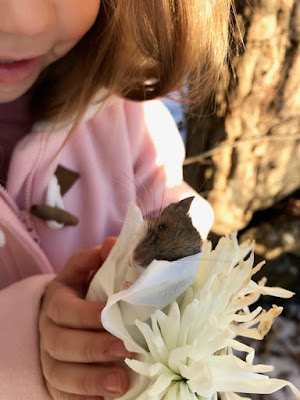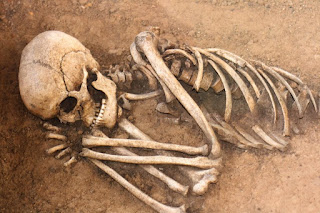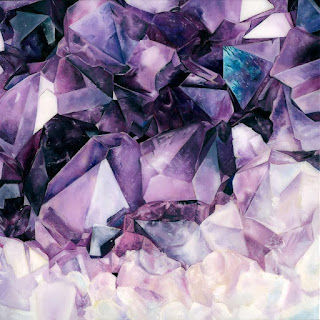A Tiny Death on Christmas Morning
This morning we woke up late to the sun pouring in our windows. Our toddler was mostly cooperative about letting her parents linger, but when I say we "woke late" understand that we pounced upon at 7:30 and laid in bed until eight. It's Christmas morning but we don't celebrate it in all it's glorious craze like so many. Instead we wandered downstairs, made coffee, started a fire in the stove, gave a cuddle to our cat Cuchatta and right there at her feet with a smile upon her face was a neatly dead Christmas mouse. Cuchatta was proud to offer this gift in exchange for some pretty talk... The only one in the family to do a gift exchange. But, as a death doula, I know that this is actually the best gift our family could've been given.
My father-in-law was diagnosed with non-hodgkins lymphoma this summer. He has lived with us in the past, and got quite close to our toddler, then moved back to Chile for a year and now is living near us again while undergoing treatment. The illness combined with chemotherapy, radiation therapy and a previous ailment has made him age rapidly. The past couple of months have been peppered with ER trips, weeks in ICU and lots of trips to various doctors. It is impossible to know how long we are going to live just as it is impossible to when someone will die. Medicine can extend the life of a human almost to the point of them becoming a kind of Frankenstein, but no matter what intervention, at a single random moment, out of the control of all, the life will leave.
This morning could've been a phone call from the Care Center just 3 minutes down the road saying that my father-in-law did not wake up this morning. Or, this morning could've been a phone call or an email that someone much younger, possibly a family member or a best friend had died unexpectedly. In both of these alternative circumstances I would have had to take time to explain to my toddler while scrambling to "make arrangements" or crying uncontrollably or possibly unable to do any of this at all because of shock.
Instead, our Christmas morning gift was a tiny dead mouse who was not decapitated (for once) but instead looked rather peaceful. My toddler was the one who saw it first and she said, "Oh, look. A dead tiny mouse. Let's return him to the earth." Yes, we've been through this before. Dead dragonflies, dead birds, turtles, a dead baby fox... We pull them off the windshield, or from below the window where they crashed or drag them off the road and there have a small ceremony to return their bodies to the earth.
The Tiny (physical) Deaths that we experience are insects, mice, roadkill... Deaths of pets can range from a Small Death to a Big Death depending on how much of a part of the daily life they were, the manner of death and any number of detailed circumstances. The Very Big Deaths are the deaths of our human companions, caretakers, and children that we love. Of course, sometimes the death of a pet can feel bigger than the death of a parent. It's all very individual.
Practice death daily with the Tiny Deaths. No matter where or when or how, you can always notice it and in doing so, give it's life and death value. Practice doing ceremonies, practice looking at death, even when it's messy. Practice deciding what to do with the body. Where does your mind go? How do you feel upon looking at, touching or not touching it, and in general the experiencing of it? How do you make yourself feel better? Practice with the Tiny Deaths.
It's never too early to appreciate life.
(See the next blog for instructions on Noticing Death and Simple Ceremonies for Tiny Deaths)
My father-in-law was diagnosed with non-hodgkins lymphoma this summer. He has lived with us in the past, and got quite close to our toddler, then moved back to Chile for a year and now is living near us again while undergoing treatment. The illness combined with chemotherapy, radiation therapy and a previous ailment has made him age rapidly. The past couple of months have been peppered with ER trips, weeks in ICU and lots of trips to various doctors. It is impossible to know how long we are going to live just as it is impossible to when someone will die. Medicine can extend the life of a human almost to the point of them becoming a kind of Frankenstein, but no matter what intervention, at a single random moment, out of the control of all, the life will leave.
This morning could've been a phone call from the Care Center just 3 minutes down the road saying that my father-in-law did not wake up this morning. Or, this morning could've been a phone call or an email that someone much younger, possibly a family member or a best friend had died unexpectedly. In both of these alternative circumstances I would have had to take time to explain to my toddler while scrambling to "make arrangements" or crying uncontrollably or possibly unable to do any of this at all because of shock.
Instead, our Christmas morning gift was a tiny dead mouse who was not decapitated (for once) but instead looked rather peaceful. My toddler was the one who saw it first and she said, "Oh, look. A dead tiny mouse. Let's return him to the earth." Yes, we've been through this before. Dead dragonflies, dead birds, turtles, a dead baby fox... We pull them off the windshield, or from below the window where they crashed or drag them off the road and there have a small ceremony to return their bodies to the earth.
The Tiny (physical) Deaths that we experience are insects, mice, roadkill... Deaths of pets can range from a Small Death to a Big Death depending on how much of a part of the daily life they were, the manner of death and any number of detailed circumstances. The Very Big Deaths are the deaths of our human companions, caretakers, and children that we love. Of course, sometimes the death of a pet can feel bigger than the death of a parent. It's all very individual.
Practice death daily with the Tiny Deaths. No matter where or when or how, you can always notice it and in doing so, give it's life and death value. Practice doing ceremonies, practice looking at death, even when it's messy. Practice deciding what to do with the body. Where does your mind go? How do you feel upon looking at, touching or not touching it, and in general the experiencing of it? How do you make yourself feel better? Practice with the Tiny Deaths.
It's never too early to appreciate life.
(See the next blog for instructions on Noticing Death and Simple Ceremonies for Tiny Deaths)



Comments
Post a Comment